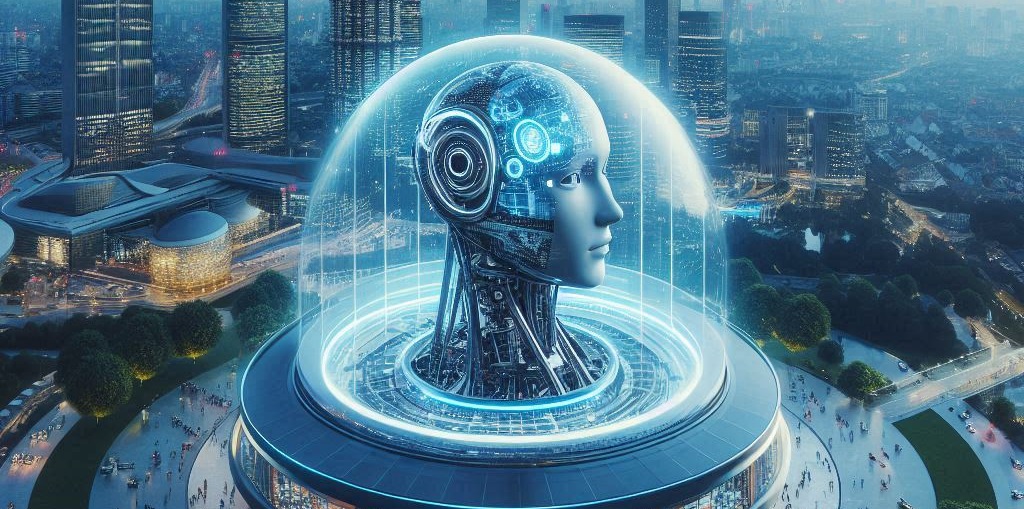Technology has become an inseparable part of our daily lives and a fundamental driver of modern business operations. From smartphones to cloud computing, technological innovations have transformed the way we communicate, work, and even think.
Over the past few decades, technology has driven unprecedented change, reshaping industries and altering our personal and professional landscapes.
In this blog, we will explore how technology impacts everyday life and business operations, focusing on communication, productivity, entertainment, and innovation.
Read More: How is Technology Changing Real Estate?
1. The Evolution of Communication
One of the most profound impacts of technology on everyday life is in the realm of communication. Just a few decades ago, long-distance communication relied on letters, landlines, and, at times, expensive international calls. Today, advancements like the internet, social media, and instant messaging have made communication faster, more accessible, and cost-effective.
For individuals, tools like WhatsApp, Zoom, and email have made staying in touch with loved ones and colleagues easier than ever before. Social media platforms allow people to share experiences, thoughts, and updates with friends and family, no matter where they are in the world. Instant messaging has shortened the time it takes to reach someone, making communication nearly instantaneous and breaking down barriers of distance.
In the business world, communication technologies have revolutionized how companies interact internally and externally. Businesses can now collaborate with partners, suppliers, and customers across the globe in real-time. Tools like Slack, Microsoft Teams, and Zoom allow teams to communicate efficiently, share documents, and even hold virtual meetings without the need for physical presence.
The ability to communicate seamlessly with people from different time zones and regions has increased globalization, enabling companies to scale and expand operations into new markets.
The rise of remote work, particularly accelerated by the COVID-19 pandemic, is a direct result of technological advancements in communication. Employees can now work from home or anywhere with an internet connection, using video conferencing, cloud collaboration tools, and project management software to stay connected and productive. The flexibility and convenience offered by remote work would not have been possible without the integration of modern communication technologies.
2. Increased Productivity and Efficiency
Technology has made everyday tasks more manageable, enhancing both personal and business productivity. With the help of digital tools, apps, and automation, people can accomplish tasks faster and with greater accuracy.
In everyday life, smartphones, for instance, serve as multipurpose devices for organizing schedules, tracking fitness, setting reminders, and managing finances. Smart home devices, such as virtual assistants like Amazon’s Alexa or Google Home, automate household tasks like controlling lighting, setting alarms, or even ordering groceries.
In the business landscape, productivity software such as Microsoft Office, Google Workspace, and project management tools like Asana or Trello have streamlined operations. These platforms allow employees to collaborate on documents, track project progress, and meet deadlines efficiently.
Automation technologies, such as robotic process automation (RPA), have also gained prominence, allowing businesses to automate repetitive tasks like data entry, invoicing, and payroll processing.
Artificial intelligence (AI) and machine learning have also been game-changers, particularly in enhancing decision-making processes. AI algorithms can analyze vast amounts of data in a short time, providing businesses with insights that were previously unattainable. Predictive analytics, for example, can help companies forecast trends, optimize inventory, or target marketing campaigns more effectively.
Furthermore, businesses are increasingly adopting cloud computing to enhance productivity and flexibility. The cloud allows companies to store data and applications remotely, reducing the need for on-premise servers and enabling employees to access information from anywhere. This has allowed businesses to scale quickly, avoid downtime, and enhance collaboration between teams in different locations.
3. Transformation of Entertainment and Media
The way we consume entertainment has been entirely transformed by technology. Gone are the days when people had to visit movie theaters, buy DVDs, or wait for their favorite TV shows to air. Streaming services like Netflix, Hulu, and Spotify have revolutionized how we consume media, providing on-demand access to movies, music, and TV shows. Content can now be accessed anytime, anywhere, through multiple devices, such as smartphones, tablets, and smart TVs.
Social media platforms like YouTube, Instagram, and TikTok have also reshaped entertainment by enabling user-generated content. Anyone can now create, upload, and share videos, photos, or other forms of media with a global audience. This democratization of content creation has led to the rise of influencers and content creators who earn a living through sponsorships, ads, and subscriptions.
In the gaming industry, technological advances have led to a surge in interactive and immersive experiences. Virtual reality (VR) and augmented reality (AR) technologies are taking gaming and entertainment to new levels by offering users immersive experiences that blend the physical and virtual worlds. This shift has opened new opportunities for businesses in sectors such as marketing, education, and training, where VR and AR applications can be used for customer engagement, simulations, and more.
4. Innovation in Business Models and Customer Engagement
Technology has driven innovation in business models, enabling companies to disrupt traditional industries and create new market opportunities. E-commerce platforms like Amazon, Alibaba, and Shopify have redefined retail, allowing businesses to reach global markets without the need for physical storefronts. Consumers can now shop online, compare prices, and have products delivered directly to their doorsteps with just a few clicks. This shift to online shopping has also created opportunities for entrepreneurs and small businesses, who can now compete in the global marketplace through digital platforms.
Subscription-based models, enabled by technology, have also gained traction across various industries, from software (Software as a Service) to media (Netflix, Spotify) to food delivery (HelloFresh). These models offer businesses recurring revenue streams and allow customers to access services and products without significant upfront costs.
In addition, technology has enhanced how businesses engage with customers. Customer relationship management (CRM) systems like Salesforce and HubSpot allow companies to track interactions, analyze customer behavior, and personalize marketing efforts. Chatbots, powered by AI, provide instant customer support, improving user experience and reducing response times. Social media platforms have become critical tools for businesses to interact with their audience, build brand loyalty, and gain valuable feedback through likes, shares, and comments.
Businesses are also adopting digital marketing strategies, leveraging data analytics and artificial intelligence to target customers more effectively. By analyzing customer data, companies can tailor advertisements, content, and promotions to individual preferences and behaviors. This personalization not only enhances customer experience but also increases conversion rates and sales.
5. Challenges and Ethical Considerations
While the impact of technology has largely been positive, it has also introduced challenges and ethical considerations that cannot be ignored. One of the most significant concerns is data privacy. As people share more personal information online, concerns about how businesses and governments handle this data have grown. Data breaches, surveillance, and misuse of personal information by tech companies have raised questions about privacy rights and security.
In addition, automation and AI have led to concerns about job displacement. As machines take over routine tasks, many fear that jobs in industries like manufacturing, retail, and customer service may be at risk. While technology creates new opportunities, the transition requires significant reskilling of the workforce to keep pace with the changing job market.
There are also ethical concerns surrounding AI, such as bias in algorithms and the potential for misuse in surveillance and weaponry. As AI becomes more integrated into business operations, ensuring transparency, fairness, and accountability will be critical.
Conclusion
The impact of technology on everyday life and business operations is profound and far-reaching. It has revolutionized how we communicate, increased productivity, transformed entertainment, and driven innovation in business models. However, it also presents challenges that must be addressed, particularly in areas like data privacy, job displacement, and ethical AI use.
As we continue to embrace technological advancements, it is essential to strike a balance between leveraging these innovations for progress and ensuring that they are used responsibly. Technology will undoubtedly continue to shape our future, influencing how we live, work, and interact in an increasingly digital world.








